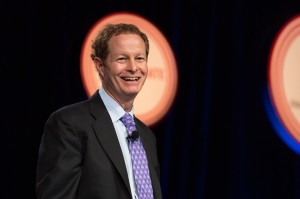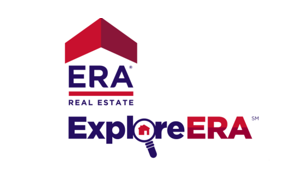What is a conscious culture? According to co-Founder and co-CEO of Whole Foods Market, John Mackey, it is a living, breathing part of a business encapsulating the company’s mission, purpose and values practiced over time. Simply put, it’s the way things are done in that business.
Paying attention to your culture is important because as Mackey stated at IBC: “A company’s culture can be a severe constraint on its success or a source of strength and competitive advantage.”
A conscious culture has many intricacies which Mackey categorizes into seven characteristics: trust, accountability, love & caring, transparency, integrity, loyalty and egalitarianism. Here’s how he defines each one.
Trust: Trust is the most important element of a conscious culture because trust given equals trust received. It is marked by a genuine commitment to authenticity and purpose, built over time based on actions, not just words. For example, internal and external communications are honest and straightforward, devoid of spin and advertising is factual, not hyperbolic. Trust must be embodied in all things – internally and externally. As a gut check, make sure you are applying the ethic of fairness to all internal processes including hiring, promotion, compensation, discipline and termination.
Accountability: Ensure that your team knows that all people in the organization are accountable to all stakeholders. In other words, do what you say you are going to do and hold people responsible for performance, efficiency and deliverables.
Love & Caring: People in conscious cultures behave in ways that are thoughtful, gentle, considerate, and compassionate. Caring begets caring. Now more than ever, it is critical to incorporate love and care into a culture because as Mackey said, women have higher degrees of emotional intelligence than men and as 60 percent of people in college right now are women as well as 70 percent of grad school, they will be entering the workforce soon, expecting and transforming cultures to include love and care. This element of the culture seeks to eliminate fear which empowers people and boosts creativity. At Whole Foods Market, each meeting ends with a few minutes set aside for appreciation. People voluntarily recognize one another – a practical, cost-free expression of love and care in the workplace.
Transparency: In a conscious culture, there are few secrets because there is little to hide. Being open and honest helps trust to flourish and creates a less competitive, more teamwork oriented environment. At Wholes Foods Market, for example, the company shares all relevant financial information, including what everyone gets paid. Sharing these facts acts as a check against favoritism and helps constitute fairness in all elements of the business.
Integrity: People should be guided by what they believe is right, not merely by what is legal or socially acceptable. Integrity goes beyond telling the truth. It is doing what is right at all times, being fair, authentic and exhibiting moral courage. Integrity is critical to any conscious culture because it says something about who you are as a person and in turn, about what your organization is and stands for.
Loyalty: Building a relationship with all stakeholders through ongoing and consistent caring behavior will help your company in the long run. If people feel cared about, they will be more loyal to your organization. Therefore, if you cultivate loyalty over time and your company hits a rough patch, chances are those stakeholders will stick with you, transcending the problem and helping you get through the challenge.
Egalitarianism: Belief in the equality of all people; that is how egalitarianism is defined in the dictionary. How does Mackey define it? He said that egalitarianism in an organization means that everyone is treated with respect and dignity. At Whole Foods Market, everyone has the same benefits and the salary difference between the top and front lines is smaller than at traditional companies. In addition, an open-door policy allows team members to communicate with even top leadership in an informal way.
A conscious culture grows stronger when the key drivers of intrinsic motivation are introduced and cultivated among your workforce. They are; autonomy, the desire to direct our own lives; mastery, the desire to continually improve at something that matters; and purpose, the desire to do things in service of something larger than ourselves.
The role of management is to create, sustain and strengthen the conditions that allow your team to operate with intrinsic motivation. This begins with making the right hiring decisions and putting those hires in the right roles so the person excels in an area where they are talented, interested and empowered.
Empowerment plus decentralization, the wide diffusion of collective knowledge and intelligence, equals innovation. It creates and fosters an environment where people can make their own decisions for the organization, allowing for experimentation, which results in new or improved ideas, programs and practices – innovation.
Innovation then spreads throughout the entire organization. The bad experiments get thrown out but the good ones get recognized, studied, copied and disseminated throughout the company.
If you are looking to build or strengthen your company culture, take a look at the seven characteristics above and see where and how they can be incorporated. Then, ask yourself, are my people empowered? Are they knowledgeable about the company and industry? How can I ensure they feel comfortable making decisions on behalf of the organization and inspire experimentation an innovation?
Use a little inspiration from Mackey’s perspective but whatever you do, focus on culture now rather than later because remember this statement from Mackey: “Culture eats strategy for breakfast.”



